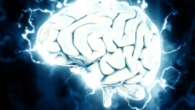
Why don't you have dreams and do you have to worry about it?
0
Faster after all, you just forget them.
Where do dreams come from
When we sleep, our body does not sink into a state of unconscious rest, but switches between the phases of slow and rapid sleep. They fully replace each other only if a person sleeps at night, because during daylight hours the work of circadian rhythms is disrupted. It is a kind of biological clock that is responsible for how we rest.
During REM sleep phases, the brain remains very active. The first of them lasts about 10 minutes, closer to the morning they become longer. At these moments, our eyes under closed eyelids begin to move intensively, breathing becomes more frequent and irregular. During these phases, we see vivid, memorable dreams.
Dreams also occur during periods of long sleep, but usually they are simple, fragmentary, dull and inconsistent.
All our dreams are based on memories, feelings and images received during waking hours, and even the strangest of them have elements borrowed from reality. This is largely why, for example, people with depression can have nightmares. They reflect a difficult mental state.
Is there any benefit to dreams
Scientists have not yet fully determined why a person needs dreams. The most popular explanation is that they can help us cope with emotions and make sense of the world around us. So, during sleep, memories are selected and either incorporated into our storehouse of knowledge (long-term memory) or deleted. That is, we get rid of everything superfluous. This is a kind of relief.
There is also a study whose authors found a connection between the amount of REM sleep and creative thinking. Scientists believe that the active mental activity associated with dreams helps develop associative connections in the brain.
However, much more is known about the benefits of sleep in general. For example, during it, toxins are removed from our brain.
Why don't we dream
Most often there is nothing wrong with this. But sometimes the absence of dreams indicates health problems.
They dream, but you forget them
Most people have dreams that, in total, last about 2 hours per night. But we forget almost all of them. Therefore, it may seem that you did not dream anything.
The fact is that during the phases of REM sleep, the ability to remember information deteriorates. This happens because neurons responsible for the production of melanin-concentrating hormones begin to work in the hypothalamus.
Most often, only the dream that was dreamed before waking up is recorded. When we wake up, our memory starts working normally again. The ability to remember returns and the dream is not forgotten.
The meaning of the dream also plays a role. The brighter and more specific it is, the better it is remembered. For example, the images we see in the phases of deep sleep are more like static photographs than movies. Therefore, such dreams are poorly remembered.
You are over 60 years old
With age, the amount of REM sleep, as well as sleep in general, decreases in a person. Therefore, elderly people can gradually stop dreaming. This is a natural process and you should not be afraid of it.
You have sleep apnea
This is a sleep disorder in which breathing is interrupted. As a result, the body cannot enter the phase of REM sleep. You should consider the possibility of this disease if you suddenly stop dreaming.
You have narcolepsy
This is a neurological disorder that causes bouts of daytime sleepiness and disrupts the normal regime. Due to this, the natural regulation of REM sleep is disturbed. As in the case of sleep apnea, the sudden disappearance of dreams can indicate the development of such a disease.
You use certain substances
Difficulties with the transition of the body to REM sleep can occur due to the use of antidepressants, alcohol, nicotine or coffee before bedtime. For example, antidepressants relax and therefore induce deeper stages of sleep, while caffeine, on the contrary, leads to insomnia.
What to do to make dreams come back
If you always sleep soundly, but in the morning you can never or very rarely remember what you dreamed about, there is nothing to worry about. It's just that your body works in such a way that dreams are not remembered or are remembered very rarely. This may be unfortunate, but it does not mean anything bad.
If you still want to remember a dream, use the advice of Harvard University Medical School professor Robert Stickgold, which he gave in an interview:< /p>
- While falling asleep, repeat that you would like to remember today's dream without fail.
- Drink water before going to bed. Getting up when you need to at night will activate your memory and remember your dreams better.
- Stay in bed for a while after waking up. Think and try to remember what you might have dreamed.
If you have stopped dreaming with age, it is unlikely that anything can be done about it. In any case, regardless of your age, it will be beneficial to maintain a healthy sleep. Sleep 7-9 hours a day, try to relax and not use gadgets before going to bed, do physical exercises and follow the regime. It is not a fact that it will help you see dreams, but it will definitely have a positive effect on your health.
It will not be superfluous to give up the abuse of alcohol and cigarettes. It is also better not to drink coffee at night. This way you will be able to get rid of the negative effects of these substances on sleep. You should take the drugs only if they have been prescribed by a doctor.
If you suspect that you have a sleep disorder, make an appointment with a doctor. Only a specialist can prescribe treatment. For example, patients with apnea are helped by therapy using a device that maintains pressure in the respiratory tract.









Leave a Reply